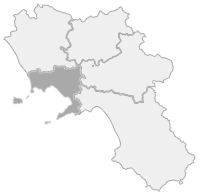The great Norwegian playwright Henrik Ibsen was born in Skien on 20th of March 1828, second-born of a wealthy. However, the economic fortune of the family suffered a hard blow when Henrik was still a child and the Ibsen family had to move to a farm.
 Showing an inclination for studies and an interest in medicine, the young Henrik studied privately, before returning to his hometown, where the fathers’ company of woodworking soon failed. Therefore, in order to help his family, Henrik worked in a pharmacy. There, during the following years, a centre of aggregation for young people was created, while Henrik started to publish his poems. In 1848 he published Catilina, is first tragedy, before moving to Christiania, the actual Oslo. In the city, in 1850, he began as a playwright. With The warriors’ barrow. During that year he started his career as a director of important theatres, which was then followed by an intense drama production. In 1864, he published The Pretenders. Disagreeing with the neutral policy of his country regarding the war of the Schleswig Holstein, he left Norway on 2nd of April 1864 and he moved to Italy. He settled in Rome with his family and he wrote Brand in 1866.
Showing an inclination for studies and an interest in medicine, the young Henrik studied privately, before returning to his hometown, where the fathers’ company of woodworking soon failed. Therefore, in order to help his family, Henrik worked in a pharmacy. There, during the following years, a centre of aggregation for young people was created, while Henrik started to publish his poems. In 1848 he published Catilina, is first tragedy, before moving to Christiania, the actual Oslo. In the city, in 1850, he began as a playwright. With The warriors’ barrow. During that year he started his career as a director of important theatres, which was then followed by an intense drama production. In 1864, he published The Pretenders. Disagreeing with the neutral policy of his country regarding the war of the Schleswig Holstein, he left Norway on 2nd of April 1864 and he moved to Italy. He settled in Rome with his family and he wrote Brand in 1866.
The following year he went to Ischia in spring and landed on 20th of May with his wife and his daughter. He already intended to dedicate himself to writing his new tragedy, the Peer Gynt, which he had already planned in Rome. On the island, he was living in Casamicciola, which would have then become Villa Ibsen. He was methodical and spent almost the whole day alone writing. The only distraction was the evening walk, along the way to Forio, with his friend Vilhelm Bergsöe, who Ibsen familiarly called Jacob. He had met him some time before in Rome. On the way back, when it was already dark, they used to stop at a tavern of Piazza Bagni to taste the Ischitan wine, particularly appreciated by the playwright, who at that time broke the silence and told about Norway. Ibsen did not show any enthusiasm for the excursions his friend really liked nor interest in knowing the reality of the island, as he was busy with work. When on the 14th if August in his creative cocoon he felt the ground shaking, he rushed to leave the island two days later with his family and went to Sorrento, where he completed the Peer Gynt. Later, every detail of his stay in Ischia would have been know thanks to Ibsen in Ischia of BergsöE. In 1868, he moved to Dresden and then returned to Rome and continued writing for the theatre. In 1879 during a stay at Amalfi, one of his biggest and most represented works came to light: A doll’s house. In 1881, another great work: Ghosts and many others followed marking a very prolific season until 1899, just before a paralysis prevented him from continuing writing. Ibsen died in Christiania on 23rd of May 1906.



Comments powered by CComment